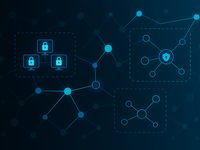
Coalfire Articles





Compliance
CMS ARC-AMPE SSPP Ownership Levels for Inherited Controls
3 min read
January 26, 2026
Read more

Cloud
The Quantum Shift: Why Cloud Customers Need a Post-Quantum Strategy Today
January 23, 2026
Read more


AI Governance
The CISO's 2026 Challenge: Why Traditional Security Can't Keep Up with AI Agents
January 6, 2026
Read more

Blog
The Hidden Savings of Micro-Segmentation: A Prescription for Lower Cyber Insurance Costs
12 min read
December 31, 2025
Read more